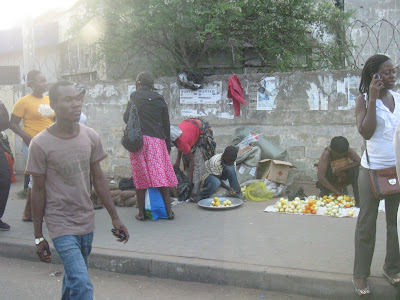Here, for your pleasure, is a peek at the New York state ballot for Brooklyn [to be official: Kings county] that I just downloaded.
I promise to fill this out within the next seven days and then mail it within the next seven days. [Devil, thy name is procrastination.]
For a bit, I was torn about voting. I was helping decide what person should take office in America. Because I live in Germany, my actions seemed a bit over reaching. After I got a kind tongue lashing from my friends in America and my German husband, I was back to energetically voting again.
Wish me luck.














